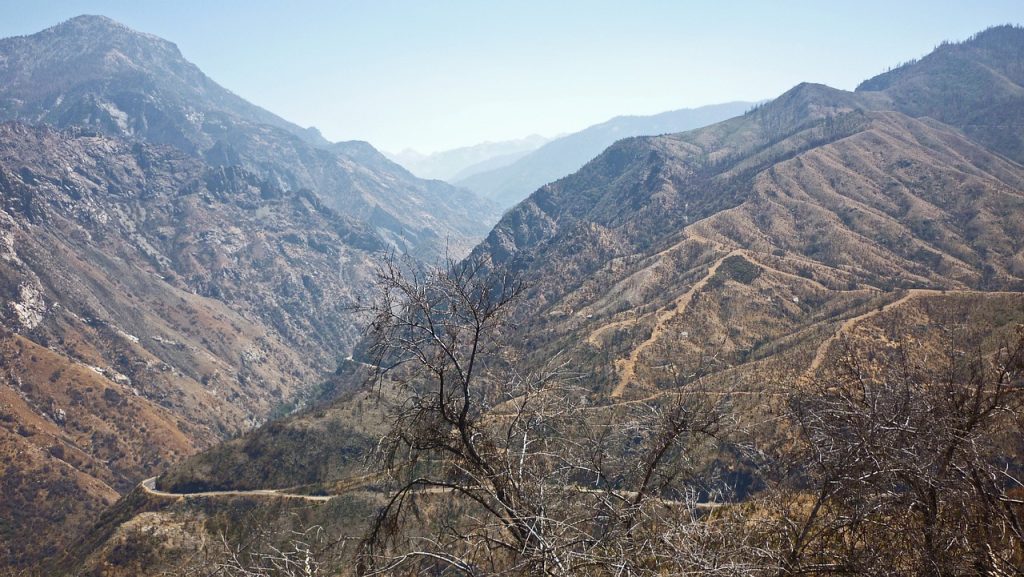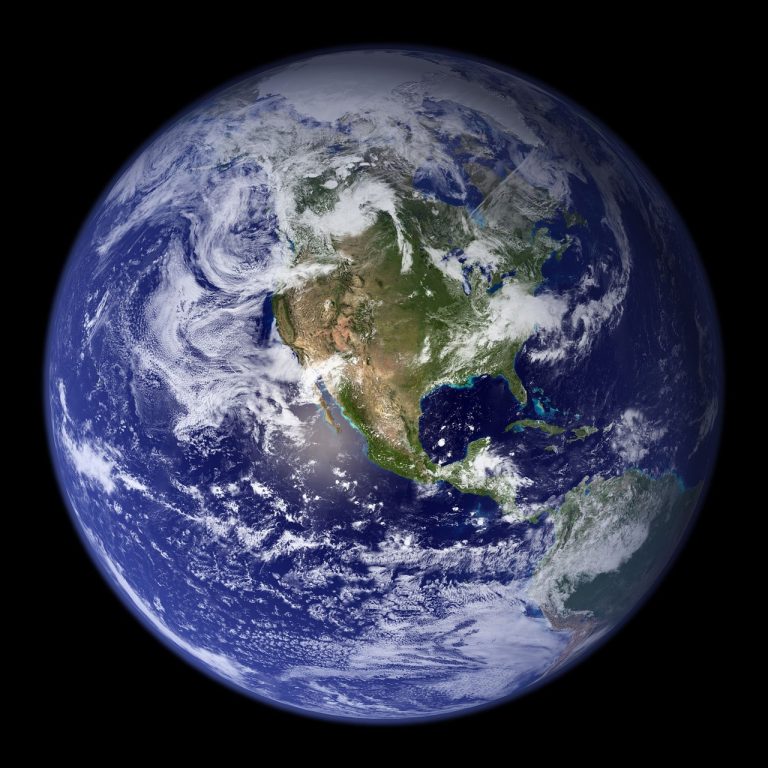
In a world that’s constantly evolving, global events are like the threads weaving the fabric of our future. From technological advancements to climate crises, every event has a ripple effect that influences our daily lives, politics, and economies. Have you ever stopped to think about how interconnected we all are? When a storm hits one part of the world, it can disrupt supply chains thousands of miles away. This interconnectedness means that understanding these events is crucial for anyone who wants to navigate the complexities of modern life.
Take technology, for instance. It’s not just about the latest smartphone; it’s about how we communicate and connect with each other on a global scale. With social media and instant messaging, news travels faster than ever before. A single tweet can spark global movements, shaping public opinion and influencing policy changes overnight. This rapid dissemination of information is a double-edged sword, presenting both opportunities and challenges. How do we discern fact from fiction in a world flooded with information? That’s a question we must grapple with as we move forward.
Then there’s the pressing issue of climate change. It’s not just a buzzword; it’s a reality that affects every corner of the globe. As temperatures rise and weather patterns shift, economies and societies are forced to adapt. This leads to significant challenges, but also opportunities for innovation. For instance, the push for renewable energy sources is not just a response to climate change; it’s a chance for economic growth and job creation in new industries. Isn’t it fascinating how adversity can lead to progress?
As we delve deeper into these topics, we’ll uncover the nuances of how global events are reshaping our world. From the rise of social movements advocating for justice to the intricate dance of geopolitical tensions, each element plays a role in crafting our collective future. So, buckle up as we explore the dynamic landscape of our world today!
The Role of Technology in Global Change
In today’s fast-paced world, technology is not just a tool; it’s a game changer. From the way we communicate to how we conduct business, technology is reshaping our lives at an unprecedented rate. Have you ever thought about how a simple smartphone has transformed our ability to connect with people across the globe? It’s like having a window to the world right in our pockets! This influence extends beyond personal interactions; it also plays a crucial role in driving global events.
Consider the impact of social media platforms. They have become powerful catalysts for change, allowing voices to be heard that might otherwise go unnoticed. For instance, movements like #MeToo and Black Lives Matter gained momentum largely through platforms like Twitter and Instagram. These technologies enable individuals to share their stories, mobilize support, and pressure policymakers for change. In essence, technology has democratized information, allowing for a more engaged and informed society.
Moreover, advancements in technology are also revolutionizing industries. The rise of artificial intelligence (AI) and machine learning is altering job markets and creating new economic opportunities. However, it also raises questions about job displacement and the future of work. As we embrace these innovations, we must consider how they will shape our economies and societal structures in the long run.
To illustrate the profound effects of technology on global change, let’s look at a few key areas:
| Area | Impact |
|---|---|
| Communication | Instant connectivity, global reach |
| Social Movements | Amplified voices, grassroots organizing |
| Economy | Job creation vs. displacement, new markets |
In conclusion, technology is a double-edged sword, bringing both opportunities and challenges. As we navigate this rapidly changing landscape, it’s essential to recognize the role technology plays in shaping our future. Are we ready to embrace the changes and harness the potential of technology to create a better world?
Climate Change and Its Global Impact
Climate change is not just a distant threat; it’s a reality that is reshaping our world as we speak. From the melting glaciers in the Arctic to the devastating wildfires in Australia, the signs are all around us. But what does this mean for our future? Well, it’s a complex web of impacts that intertwine our economies, societies, and global policies. As temperatures rise, we are witnessing a shift in weather patterns that disrupt agricultural practices, leading to food shortages and increased prices. Can you imagine a world where your favorite fruits and vegetables are no longer available?
Moreover, the economic implications are staggering. Countries heavily reliant on agriculture and natural resources are particularly vulnerable. For instance, developing nations often bear the brunt of climate-related disasters, which can cripple their economies and exacerbate poverty. According to a recent study, it is estimated that climate change could push an additional 100 million people into extreme poverty by 2030. This is not just a statistic; it’s a call to action!
Additionally, the environmental shifts are prompting governments worldwide to reconsider their policies. International agreements, such as the Paris Accord, aim to unite nations in the fight against climate change. However, the effectiveness of these policies often hinges on cooperation and commitment from all parties involved. Without this, we risk falling into a cycle of blame and inaction, which could lead to catastrophic consequences.
In conclusion, the impact of climate change is profound and multifaceted. It challenges us to rethink our approach to sustainability and global cooperation. Will we rise to the occasion, or will we be swept away by the tides of change? The choice is ours, and the time to act is now.
Geopolitical Tensions and Their Consequences
Today, the world feels like a high-stakes game of chess, where every move can have profound implications. With increasing geopolitical tensions across various regions, the delicate balance of international relations is being tested like never before. From trade wars to military standoffs, these conflicts are not just headlines; they are shaping our daily lives and futures in ways we might not even realize.
Take, for example, the ongoing disputes in the South China Sea. Nations are not just defending territory; they are also vying for control over vital shipping routes and resources. This situation raises critical questions: What happens if a miscalculation leads to conflict? How will global economies react? The ripple effects could be catastrophic, affecting everything from oil prices to consumer goods.
Moreover, the impact of these tensions extends beyond just economics. They can strain diplomatic relations, making it increasingly difficult for countries to cooperate on pressing global issues like climate change or public health crises. When nations are at odds, the potential for collaboration diminishes, and the world becomes a more fragmented place.
To illustrate the consequences of these geopolitical dynamics, consider the following table that highlights recent conflicts and their potential global impacts:
| Conflict | Region | Potential Impact |
|---|---|---|
| South China Sea Dispute | Asia | Increased shipping costs, military escalation |
| Russia-Ukraine Tension | Europe | Energy supply disruptions, refugee crises |
| Middle East Conflicts | Middle East | Global oil price volatility, humanitarian issues |
In conclusion, as we navigate this complex web of geopolitical tensions, it’s crucial to stay informed and engaged. The consequences of these conflicts are not isolated; they affect all of us, shaping the future of our societies and economies. Are we prepared to face the challenges that lie ahead?
The Rise of Social Movements
The world is witnessing a remarkable surge in social movements that are reshaping our societal landscape. These movements are not just fleeting trends; they are powerful forces that echo the collective voice of the people. From climate action to racial equality, social movements are gaining momentum and capturing global attention. Have you ever wondered how a single tweet can spark a revolution? That’s the power of social media, which amplifies voices and connects individuals across continents. It’s like throwing a pebble into a pond—the ripples spread far and wide, creating waves of change.
One of the most significant aspects of these movements is their ability to influence public opinion and policy. For instance, the Black Lives Matter movement has not only raised awareness about systemic racism but has also led to tangible changes in legislation in various countries. Similarly, the Fridays for Future movement, initiated by young climate activists, has mobilized millions to demand urgent action against climate change. The question is, what drives these movements, and how do they maintain their momentum?
At the heart of these social movements lies a common thread: the desire for justice and equality. People are coming together, united by shared values and goals. This unity is often facilitated by digital platforms, allowing for rapid organization and dissemination of information. For example, social media campaigns can quickly gather support, turning local issues into global conversations. Here are some key factors contributing to the rise of social movements:
- Increased connectivity: The internet has made it easier than ever for individuals to connect and collaborate.
- Awareness of social issues: Globalization has brought attention to various injustices that were once overlooked.
- Empowerment through technology: Tools like hashtags and online petitions have democratized activism.
As we look to the future, it’s clear that social movements will continue to play a crucial role in shaping our world. They challenge the status quo and push for a more equitable society. The real question is: how will these movements evolve, and what impact will they have on our global community? Only time will tell, but one thing is certain—when people unite for a cause, they can create a force that is impossible to ignore.
Economic Shifts in a Globalized World
The world today is a complex web of interconnected economies, and the pace of economic shifts has never been faster. With globalization at the forefront, businesses are no longer confined by geographical boundaries. Instead, they are expanding their reach, tapping into new markets, and adapting to diverse consumer needs. But what does this mean for the average person? Well, it’s a double-edged sword. While globalization can lead to increased access to goods and services, it can also result in job displacement and economic inequality.
Take, for instance, the rise of e-commerce giants. Companies like Amazon and Alibaba have revolutionized the way we shop, making it possible to purchase anything from anywhere with just a click. This shift has not only transformed consumer behavior but has also forced traditional retailers to rethink their strategies. Many are now investing heavily in online platforms to stay competitive, leading to a significant restructuring of the retail landscape.
Moreover, the gig economy is another fascinating aspect of economic shifts. More people are opting for freelance work, driven by the allure of flexibility and independence. However, this shift raises questions about job security and benefits. Workers in the gig economy often lack the safety nets that traditional employment provides, such as health insurance and retirement plans. As we navigate this new terrain, it’s crucial to address these disparities to ensure a fair playing field for all.
In summary, the economic landscape is evolving rapidly, influenced by globalization and technological advancements. As we look to the future, we must consider how to adapt to these changes while also protecting the rights and well-being of workers. The road ahead may be uncertain, but one thing is clear: understanding these shifts is essential for navigating the complexities of our global economy.




